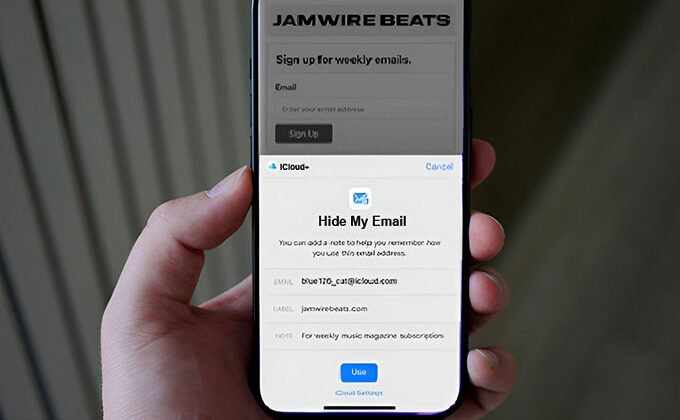Poshmark is becoming one of the popular platforms for buying and selling fashion and lifestyle items online, providing both lovers of fashion as well as resellers an avenue to market products they find on it, but also serving as a target for scammers. In this blog, we’ll go over some of the most prevalent Poshmark scams and their best ways of protecting buyers and sellers alike.
What Are Poshmark Scams?
Poshmark scams refer to any illegal acts taking place on its platform that involve dishonest buyers or sellers, and third-party impostor accounts. These scams range from falsifying listings, counterfeit goods and payment fraud to phishing attacks and payment fraud attempts – although Poshmark provides security measures, scammers continue to devise more insidious schemes.
Why Poshmark Is Considered Safe:
- Buyer and Seller Protection: Poshmark offers protection policies for both parties if transactions are completed within the app.
- Secure Payment System: Payments made between users are securely processed through Poshmark rather than being made directly between themselves.
- Shipping with Tracking: Every order includes a pre-paid and trackable shipping label for easy shipment of their purchase.
- Authentication for Luxury Items: High-value items are verified by Poshmark before they’re delivered to the buyer.
- Community Ratings and Reviews: User profiles include ratings, reviews, and history, helping you judge trustworthiness.
Also read: What is a Credit Card Skimmer and How to Avoid It
7 Common Types of Poshmark Scams
1. Phishing Scams
Scammers create false accounts on Poshmark and send fake emails or texts purporting to come from them to scam individuals into providing login credentials or financial data. These often include links to fake websites.
How to Avoid:
- Never click on suspicious links.
- Check for misspellings or strange email addresses.
- Poshmark does not ever ask for sensitive information via email and message.
2. Off-Platform Transactions
A scammer might ask you to complete a transaction outside of Poshmark (such as through PayPal or Cash App) by offering lower prices or faster delivery services.
How to Avoid:
- Always complete purchases within the Poshmark platform.
- Off-platform transactions aren’t covered by the Poshmark policies.
3. Counterfeit Items
Some sellers may list luxury items like designer bags or shoes that turn out to be fake.
How to Avoid:
- Use Poshmark’s authentication service for high-end purchases.
- Check seller reviews and ratings.
- Beware of offers that appear too promising to be true.
4. Empty Box Scams
A buyer claims they received an empty box or a damaged item and demands a refund, even though they received the correct product.
How to Avoid:
- Always ship with tracking and insurance.
- Take pictures and video proof before shipping.
- Use Poshmark’s in-app shipping service for better support.
5. Fake Return Requests
Some buyers may try to return an item claiming it was defective, only to send back a different or damaged product.
How to Avoid:
- Take detailed photos of the item before shipment.
- Communicate clearly with buyers.
- Report suspicious return claims immediately to Poshmark support.
6. Impersonation Scams
Scammers may impersonate Poshmark staff or reputable sellers, offering giveaways or rewards to trick users into sharing information.
How to Avoid:
- Verify accounts before interacting.
- Report fake profiles to Poshmark.
- Avoid sharing personal details over chat.
7. AI-Generated Fake Listings
Scammers are using AI tools to create ultra-realistic but fake product listings, especially for luxury items. These listings may include copied reviews and photos from real sellers.
How to Spot It:
- Check seller history and ratings.
- If a deal sounds too good to be true, it probably is.
- Watch for generic descriptions and overly perfect listings.
Also read: 10 Common Snapchat Scams and How to Prevent Them
Tips to Stay Safe from Poshmark Scams
- Never go off-platform for payments or communication.
- Use strong passwords and enable two-factor authentication.
- Always verify buyer and seller profiles and read reviews.
- Document all transactions, especially photos of sold items before shipping.
- Be cautious of “too good to be true” deals, especially on luxury items.
- Report and block suspicious users immediately.
- Check URLs in emails or texts to ensure they are official Poshmark domains.
- Be aware of the most recent scams and changes on the site.
What to Do If You’ve Been Scammed on Poshmark
If you suspect you’ve been a victim of a Poshmark scam, you must take these steps right away:
- Report the issue through the Poshmark support center
- Block the scammer’s profile
- Collect evidence: screenshots, photos, messages
- Contact your payment provider if an off-platform money transfer occurred (though this is not recommended)
Poshmark has a Buyer Protection and Seller Protection Policy, but these only apply to transactions done within the app.
Final Thoughts on Poshmark Scams
While Poshmark scams may be an ever-present threat, remaining aware and adopting smart practices may allow you to steer clear. The platform is generally safe; many buyers and sellers engage without experiencing any major difficulties.Attentiveness is of utmost importance – verify listings, avoid shortcuts, and utilize any built-in protections on platforms to safeguard your experience.
By following these tips and remaining vigilant, you can enjoy all the advantages of Poshmark without falling prey to scams or becoming victimized in any way.















Leave a comment